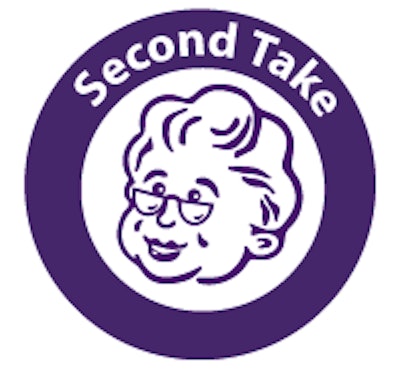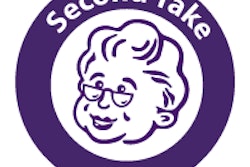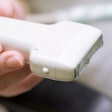
Second Take is a series of polemics edited by Drs. Saurabh Jha and Jason Itri discussing controversial issues in medical imaging, intended to offer both sides of an argument by deliberately taking a one-sided view of the subject. It is hoped that the audience will not only appreciate the duality of the argument but also the difficulty in resolving the issue. The views expressed by the authors are not necessarily the views held by them.
In his Second Take column, Dr. Jason Itri is correct in asserting the inevitability of recollection of examination questions, and the temptation to share them. He is also quite correct in alluding that policing against recollection, or the sharing of questions, is futile.
 Dr. Saurabh Jha from the University of Pennsylvania.
Dr. Saurabh Jha from the University of Pennsylvania.To which I might add that any successful policing would require control of the radiologist at their embryonic stage (I do mean in utero, not in residency), by a process not too dissimilar to bokanovskification used in the Brave New World, combined with periodic use of functional MRI, and would require a state apparatus so large that it would make North Korea seem like a libertarian paradise.
In other words, it is not possible, at least, not under the current U.S Constitution (swinging Kennedy and 5-4 Supreme Court decisions notwithstanding).
As for the pledge not to reveal examination questions that current residents must take; well, Hitler made a pledge to Chamberlain. The rest, as they say, is history.
Although Dr. Itri has not mentioned this, it must be emphasized that not a lot can be garnered about the professionalism of a resident who took advantage of recalls; i.e., the act in and of itself does not successfully predict which residents will be internally chuckling at their patient's anthropomorphism, among other unsavory, value-subtracting thoughts.
I will pretend not to have noticed his justification of "it's OK because everyone does it." The herd may absolve the individual, but the herd never absolves the herd. And if the justification for constancy is constancy, then change will never be possible.
Nevertheless, Dr. Itri misses one point, or fails to acknowledge it explicitly, when he considers the response of the American Board of Radiology (ABR) and several senior radiologists to be exaggerated, unfair, or inappropriate. On the contrary, their response was rational and inevitable.
Radiologists, indeed all physicians, enjoy a privileged position in society: We are allowed to self-police.
We do not have to contend with a plethora of rating agencies run by mirthless JD/MBA number crunchers promising to give the public access to "radiologists to whom you would feel safe entrusting your mother-in-law." No, our own organization does that for us.
Imagine if we could not self-police. Imagine if the private sector did the policing and had not one but several radiologist rating agencies (like Moody, Zagat, etc.), each with its own qualifying examination. Imagine if different hospitals used different rating agencies. Imagine the nightmare if you wanted to change jobs.
It is surely preferable reporting to one organization whose structure and process one can have a conceivable chance of influencing, rather than running through a gamut of rating agencies that may compete with one another to make the physician's burden of ensuring quality ever more onerous.
To slightly paraphrase the late Uncle Ben from Spider-Man: "With self-policing comes great responsibility." And one responsibility is to assure the public that they can trust physicians to manage their house.
Perception is reality. If the public trust is lessened by residents hunkering together and sharing material after the boards in an attempt to benefit future generations of exam takers, then this issue must be addressed, whether one believes that the lessening of trust is fair or not.
The demand of high ethics and professionalism from physicians has implications. It often extends into the private sphere of physicians.
We cannot have it both ways. We cannot expect to be placed on a parapet while simultaneously blocking the examination of aspects of our personal and professional lives that could lead to suspicion of our ethics, any more than the pastor can spend Saturday night clubbing and expect to be taken seriously by his congregation the next morning.
This is one of the side effects of radiology's status as a modern-day guild, of which there are many positive effects, such as not having to worry about a consultant from Bain Consulting recommending that our work be done for a tenth of the price in Bangalore, India.
There truly is a chasm between physicians and the public. To bridge the chasm, occasionally, actions must be taken by professional organizations that are both necessary and futile -- such as the recent crackdown on board recalls.
Dr. Jha is an assistant professor of radiology at the Hospital of the University of Pennsylvania. He is a superspecialized cardiovascular imager but will grudgingly admit that he is really just a general radiologist who likes the heart more than the posterior fossa.
The comments and observations expressed herein are those of the author and do not necessarily reflect the opinions of AuntMinnie.com.


















